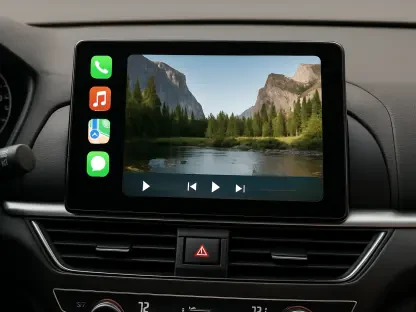Imagine a world where a mobile game not only entertains but also guides players through tricky levels with real-time, personalized tips, almost like having a seasoned coach right on the screen. Google is turning this vision into reality by weaving artificial intelligence into the fabric of Android gaming through innovative updates to Google Play Games. With a focus on enhancing user engagement and creating a seamless cross-platform experience, these advancements are poised to redefine how millions interact with games on both mobile and PC devices. At the heart of this transformation lies a new feature called the Play Games Sidekick, powered by Google’s Gemini AI platform, alongside broader updates aimed at unifying the fragmented gaming landscape. This bold step forward signals a significant shift in the industry, blending cutting-edge technology with the everyday gaming experience to elevate accessibility and enjoyment for players worldwide.
AI-Powered Tools Transforming Gameplay
Real-Time Assistance with Play Games Sidekick
Google’s introduction of the Play Games Sidekick marks a groundbreaking leap in how players receive support during gameplay. This software overlay, accessible directly within games downloaded from the Google Play Store, appears as a discreet, movable tab on the screen, delivering an array of utilities like screenshot capture, screen recording, and even live streaming capabilities on YouTube. What truly sets it apart, however, is its integration with Gemini Live, an AI-driven assistant that provides tailored game tips, strategic advice, and occasionally, lighthearted game-specific humor. By enabling screen sharing as an input, Gemini Live can analyze in-game contexts with minimal user input, offering guidance that rivals detailed human-written walkthroughs. This feature, while not yet comprehensive, represents a promising alternative for gamers seeking instant help without leaving the game environment, showcasing Google’s intent to make gaming more intuitive and interactive for Android users.
Industry Trends and Competitive Parallels
The integration of AI into gaming platforms is not an isolated effort by Google but rather part of a broader industry movement toward smarter, more responsive gaming ecosystems. Similar initiatives, such as Microsoft’s Gaming Copilot, highlight a growing trend where AI assistants are embedded directly into gaming environments to enhance player experiences. Google’s approach with Gemini Live within the Play Games Sidekick stands out by focusing on contextual understanding, minimizing the need for lengthy explanations from users. This mirrors a competitive push to simplify complex gameplay mechanics through technology, ensuring that novices and veterans alike can access support tailored to their immediate needs. While these advancements are still in early stages, with features limited to select titles from partners like EA and NetMarble, they underscore a shared vision among tech giants to leverage AI for a more engaging and accessible gaming landscape, potentially reshaping how games are played and supported across platforms.
Building a Unified Gaming Ecosystem
Cross-Platform Profile Integration
Addressing the often fragmented nature of mobile gaming, Google is rolling out a platform-level gaming profile designed to streamline experiences across Android and PC devices. Historically, many games have operated in silos, each with separate achievement systems and player stats, creating a disjointed user journey. This new profile system aims to bridge that gap by tracking progress, stats, and achievements uniformly, whether a player is on a smartphone or a desktop. Beyond functionality, it offers personalization through AI-generated profile pictures and social features that allow users to follow friends and view their gaming activities. This move not only enhances convenience but also fosters a sense of continuity and community, positioning Google Play as a central hub for gamers. As the PC version of Google Play Games moves out of beta, this unified approach could challenge established platforms like Steam, signaling Google’s ambition to dominate in both mobile and desktop gaming arenas.
Community Engagement and Developer Collaboration
Beyond technical unification, Google is fostering a more connected gaming community through new forums within the Play Store, where players can pose questions, share insights, and exchange tips. This community-driven support system complements the AI features of Play Games Sidekick, creating a multifaceted support network for gamers. Additionally, the gradual rollout of these AI capabilities, initially available in select games from partners like EA with titles such as “Star Wars Galaxy of Heroes” and “FC Mobile,” reflects a cautious yet strategic collaboration with developers. This phased approach acknowledges potential technical hurdles and user hesitancy, allowing for feedback and refinement before broader implementation. The success of these updates largely depends on adoption by both players and developers, a critical factor that could determine whether Google’s vision of a cohesive gaming ecosystem becomes a reality or remains an ambitious experiment in an ever-evolving industry.
Reflecting on Strategic Ambitions
Lessons from Past Endeavors
Looking back, Google’s journey in the gaming sector has seen its share of challenges, with initiatives like Stadia facing significant hurdles before ultimately winding down. Yet, those experiences seem to have informed a more pragmatic and focused strategy in the rollout of Play Games Sidekick and related updates. By prioritizing practical enhancements over ambitious overhauls, Google demonstrates a learned caution, ensuring features like the AI-powered overlay are optional and dismissible to avoid alienating users. The restrained implementation, limited to specific titles and partners, further highlights a measured approach that balances innovation with the risk of technical or user pushback. This reflective stance suggests a maturity in Google’s gaming ambitions, aiming to rebuild trust and engagement through incremental, user-centric improvements rather than sweeping, untested changes.
Future Steps for Gaming Innovation
As Google moves forward, the emphasis appears to rest on refining these AI integrations and expanding their reach across more games and platforms. A key next step involves encouraging wider developer participation to ensure diverse game genres benefit from Gemini Live’s capabilities, enhancing the feature’s relevance and utility. Simultaneously, strengthening community forums within the Play Store could solidify player engagement, creating a robust feedback loop to inform future updates. Monitoring user adoption rates and addressing any technical glitches remain critical to sustaining momentum. Ultimately, Google’s cautious optimism in blending AI with gaming points toward a future where technology and community converge to offer richer, more connected experiences, potentially setting a new standard for how gaming platforms evolve in response to player needs and industry dynamics.









